|
Late last year, I was scrolling through Facebook posts when I came to one that stopped me short. Posted by my friend and former University of Michigan colleague Lara Zielin, it began: My last post of 2016 has taken me all year to write. I haven't wanted to admit this, but here's the truth. . . Lara went on to reveal that her thriving career as an author had withered. She had been in a slump for the past twelve months and had even questioned her own worth. My first reaction was sympathy. As a writer who's trying to become a published author, I know how difficult and tenuous the whole process can be, and how one's self-esteem rides up and down on successes and failures. My heart broke at the thought of sunny, upbeat Lara being knocked down. As I read on, my sympathy turned to admiration. Most of us use social media to trumpet successes and share happy occasions. How rare it is to read such a frank account of, as Lara put it, "humiliating failure." Lara's year-end post ended on an optimistic note, but rather than giving that away, I have asked Lara to tell you herself about facing failure and moving forward from there. Here's Lara: 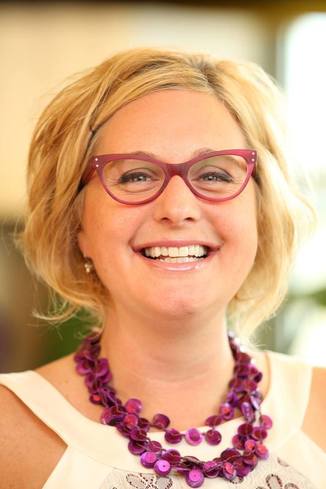 Lara Zielin Lara Zielin Do you ever feel inexplicably drawn to read a particular book? This happened to me recently at Barnes & Noble, when I looked over at the new releases section and felt the mysterious pull to read FORWARD, a memoir by soccer player Abby Wambach. Mind you, I don’t like soccer. I don’t think I’ve ever seen a game in my life. And I had no clue who this woman was or why I should care about her story. But the tug toward the title wouldn’t relent, and I took it home. 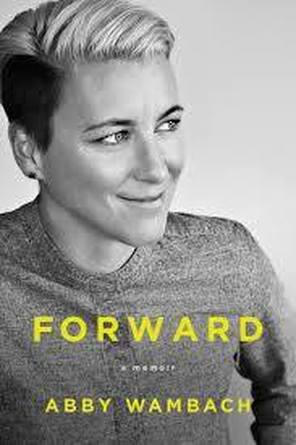 The book that called to Lara The book that called to Lara Turns out, the universe was right. I wasn’t far into the book—12 pages to be exact—when this passage hit me over the head: I love [soccer] for what it gives me: praise, affection and, above all, attention. When I’m on the field I don’t have to plead to be noticed, either silently or aloud; it is a natural by-product of my talent. I loathe it for the same reason, terrified that soccer is the only worthwhile thing about me, that stripping it from my identity might make me disappear…Already I know I’m incapable of falling in love with the game itself—only with the validation that comes from mastering it, from bending it to my will. I read the words again and again, marveling that someone was brave enough to articulate what I felt, too. Only in my case it wasn’t soccer—it was writing. Or, I guess I should clarify and say writing novels. Writing books was the only thing I’d wanted to do since I was a little kid. I can remember the first story I wrote, when I was eight years old—not the text itself, but what the paper looked like, and what the pencil felt like in my hand. I’d write so much over the next decades that I would give myself a callus I still sport to this day, a permanent rough spot that has altered shape of my finger forever. It didn’t take long before the idea of what writing could do for me went hand-in-hand with the act of putting words to paper. This will be how I become famous, I would think. This is how I will leave my mark. This is how I will show people I matter. That I’m worth something. These ideas were pressing, even when I was very young. They were very deep, buried in a dark corner of my subconscious, and completely inextricable from the hard work of getting better at my craft and my determination to make a career out of books. 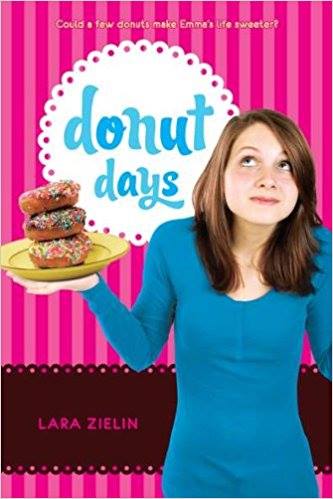 Lara's first novel, DONUT DAYS, hit the shelves in 2009 Lara's first novel, DONUT DAYS, hit the shelves in 2009 Fast-forward a few decades, to 2007 when I sold my first novel. It hit shelves in 2009. I was writing young-adult at the time, which was a perfect fit. I thought, this is it, and I kept going. My second book came out in 2011, followed by my third in 2012. I was under contract for a fourth book, which wasn’t coming as easily as the first three. It felt forced and uncertain. I wrote several versions, and each time my editor encouraged me to go back to the drawing board—to fix the characters, their motivations, the language…hell, all of it. To make matters worse, the books I did have out weren’t selling well at all. My shaky foundation of self-worth started to wobble. What if I wasn’t good at this? What if I wouldn’t or couldn’t become a writing success? Desperate to take a break from young adult, I started writing romance.  One of Lara's romances, published under the pen name Kim Amos One of Lara's romances, published under the pen name Kim Amos In 2014, I sold a trio of small-town romances at auction, giving me enough money to quit my full-time, big-girl job and take something part-time while I pursued this new venue. For a hot second, it was great. Until it wasn’t. These books didn’t sell well either, and when I pitched my publisher on a new series, they didn’t bite. They washed their hands of me and moved on. This caught me completely off guard. I figured my publisher would maybe low-ball me on the money but keep collaborating. After all, I was hardworking, I hit my deadlines, and the books I’d produced—while not bestsellers—had garnered great reviews and even an award nomination. This just wasn’t the case. And when my agent shopped my idea for the new series around to other romance publishers, no one would bite. My romance career had flamed out as spectacularly as it had started. In the meantime, the fourth book I’d written for my young-adult publisher was done, and I was enormously proud of it. After years of laboring over this story, I felt like I’d finally gotten it right. I thought, okay, romance is dead, but young-adult is still kicking, I can still be a success in this genre. Wrong. 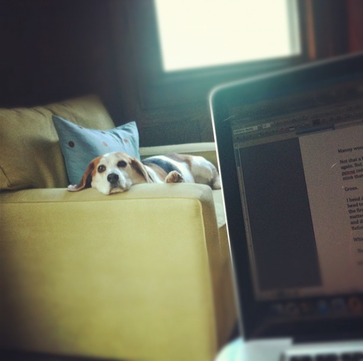 Lara's writing buddy, Amos, reflects her discouragement Lara's writing buddy, Amos, reflects her discouragement My editor wasn’t a fan of the book at all—a historical middle-grade novel about a young girl who works at a logging camp for a winter in the Wisconsin Northwoods. I’d called it the book of my heart. I think if she could, my editor would have called it a hot mess. At this point, we all agreed it would probably be best if we parted ways. My young-adult publisher broke the contract with me, and any potential revenue streams I had through publishing—not to mention opportunities for the success I so badly craved—were gone. But Lara, you’re thinking, just write a new book! Just keep trying! And I would, I swear I would, if I had any ideas coming to me. But not only had my contracts dried up, my ideas had, too. Which brings me back to Abby Wambach and her memoir. When she couldn’t play soccer any more—she had essentially aged out, and her body was fighting her with injury after injury—she fell apart. And I guess I did too when I couldn’t write novels anymore. I gained weight. I didn’t feel much like going out. I kept asking my husband, “What do I do? Writing novels is the only thing I’ve ever wanted.”  Lara shot this picture in Maine, just before her romance career took off. "I think about this visit often, because I felt like I was right on the cusp of something but didn't know what. I feel that way now too." Lara shot this picture in Maine, just before her romance career took off. "I think about this visit often, because I felt like I was right on the cusp of something but didn't know what. I feel that way now too." To which he would continually reply, “Just hang out in this uncertain place. Don’t fight it, just face the not-knowing and see what comes up.” I also had to face the fact that I was using success through novels as a way to make up for my perceived personal inequities. For years, I’d looked at myself, found myself lacking, and wanted to fill that void with external success. My husband would continually remind me: There is no void. He would tell me I was enough, just as I was. There was no hole to fill. I didn’t have to prove my worth. 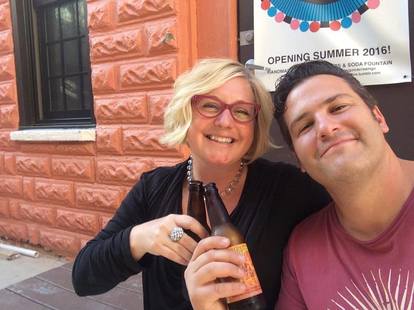 Lara and her husband Rob, whose wisdom helped her find a new passion Lara and her husband Rob, whose wisdom helped her find a new passion So I hung out in the not knowing and, it turns out, my husband was right. I was still a writer, just maybe not a novelist. Or not only a novelist. I discovered I loved copy writing and was awesome at it. I found I had a passion for nonfiction and realized that I could to put pen to paper to fight injustice. I even got an awesome new business idea, which I’m in the process of starting up. For her part, Abby Wambach came out of her spiral too, and now she’s in a new role fighting for equity in women’s sports (particularly with regard to pay), and she’s a commenter on ESPN. I can’t recommend her memoir highly enough. I was inspired and moved. The text at the very front of the book—before chapter one, even—gets me every time I read it. Abby wrote it to her four-year-old self. It’s true of Abby. It’s true of me. If you’re struggling with any of these same things, I want you to know, it’s true of you, too: Don’t try to earn your worthiness. It’s yours by birthright. Fear no failure. There is no such thing. You will know real love. The journey will be long, but you’ll find your way home. You are so brave, little one. I’m proud of you. Do you have a facing-failure story to share? Have you ever been forced to change direction and then realized that shift was more gift than setback?
4 Comments
4/12/2017 07:57:32 am
What a moving and motivating article. We've all been there, haven't we. And the struggle to find self-worth on a tightrope without a net below could be pretty devastating.
Reply
So happy to hear Lara worked her way through this very rough time in her life. It seems we all go through seasons of change. I'm glad she felt encouraged by the memoir. I understand her feeling of failure having had rejections for my writing projects too. But I think the motto for every writer or anyone who has a goal is "Don't Quit!" And Lara, I had a "writer's bump" (as my mom called it) when I was seven years old too! Wishing you success with your new plans!
Reply
4/12/2017 09:32:44 am
Ahhh Lara, you've been inspiring me for years! Thank you for continuing to share as you learn and grow.
Reply
Thank you Lara and Nancy for writing this. Coping with failure is something I think about a lot (I recently wrote a blogpost on this topic for a corporate audience). The world is a harsh judge, and when we measure our worthiness by financial or career success, most of us will come up short. It's something I grapple with all the time, especially now that I'm out on my own, only as good as my last published article! I am not brave enough to detail all my failures, as Lara has, at this point. But I will say that I find people who manage to keep going in the face of monumental defeats (often very public ones) more interesting and complex than those who never take the risks that expose them to failure in the first place.
Reply
Leave a Reply. |
Written from the heart,
from the heart of the woods Read the introduction to HeartWood here.
Available now!Author
Nan Sanders Pokerwinski, a former journalist, writes memoir and personal essays, makes collages and likes to play outside. She lives in West Michigan with her husband, Ray. Archives
April 2022
Categories
All
|
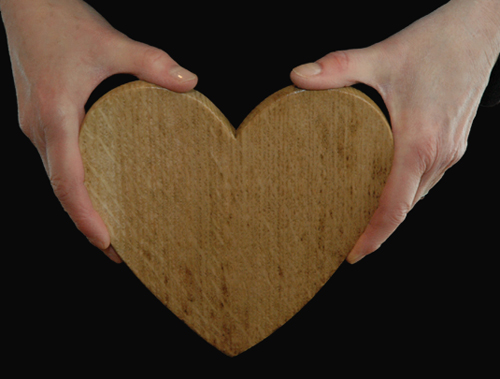
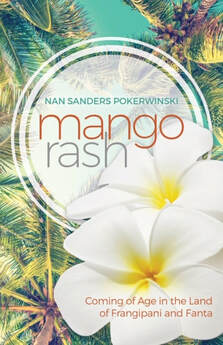
 RSS Feed
RSS Feed